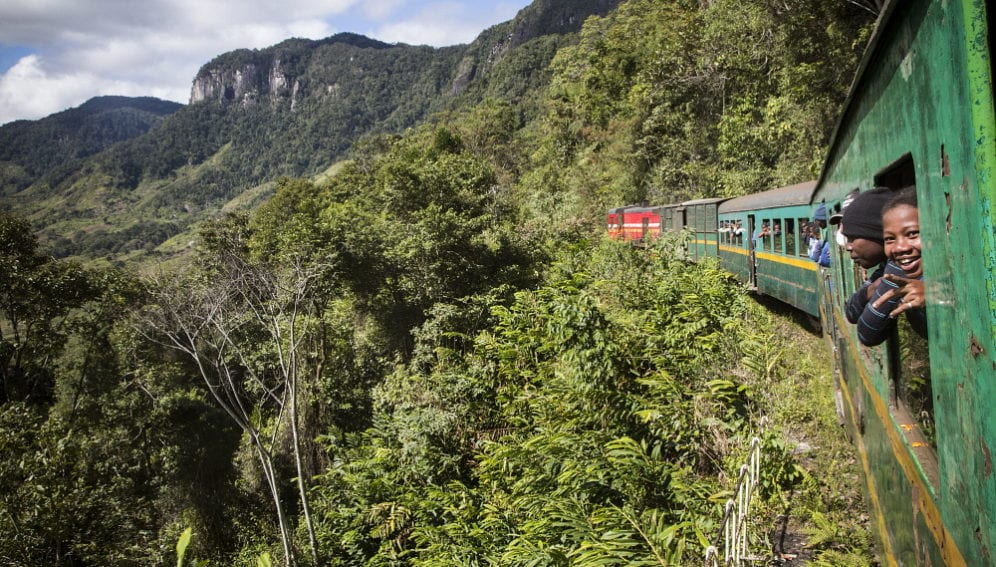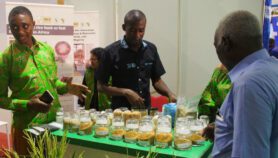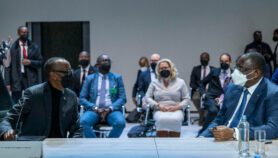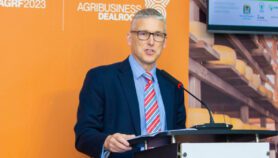By: Logan Ward
Send to a friend
The details you provide on this page will not be used to send unsolicited email, and will not be sold to a 3rd party. See privacy policy.
[WASHINGTON DC] Last week, as US President Barack Obama led the US-Africa Business Forum at Washington DC’s swanky Mandarin Oriental Hotel, I joined more than 250 academics, government ministers, NGO leaders and corporate executives at the National Academies Keck Center for a symposium on science, technology and innovation (ST&I) in Africa.
Ours was a side event during Obama’s historic US-Africa Leaders Summit (4-6 August), but it became clear that in 2014 ST&I is front-and-centre in any discussion of African development.
Good data, scientific integrity, technological innovation — these things undergird the future of Africa, whether you’re addressing a humanitarian crisis, such as the Ebola epidemic raging in West Africa, or the profit-driven economic development touted at the summit.
That message was hammered home by speaker after speaker. Calestous Juma, professor at Harvard’s Kennedy School in the United States put it succinctly by calling for “investment in the knowledge infrastructure”.
“In Africa,” he said, “the focus has always been on classical infrastructure models, but access to broadband is as important as roads and railways.”
Listening to the speakers, it became painfully clear that Africa’s knowledge infrastructure is lagging. In parts of Africa, there are fewer than two doctors for every 10,000 people, noted Farid Fezoua, president and CEO of medical technologies firm GE Healthcare in Africa.
And there are only 83 engineers per million people, according to Wole Soboyejo, a mechanical and aerospace engineering professor at Princeton University, United States. He said that most foreign firms won’t risk investing in a region until that figure reaches 1,000 per million.
South African science and technology minister Naledi Pandor described a vicious circle, in which four in ten African scientists leave home to live and work in high-income countries.
In Africa the focus has always been on classical infrastructure models, but access to broadband is as important as roads and railways.
Calestous Juma, Harvard University
But if ST&I in Africa still has a long way to go, change is happening fast. Ten years ago, the Bill & Melinda Gates Foundation gave the US National Academies US$20 million to build a movement of African national academies.
Nelson Sewankambo, president of Uganda’s National Academy, one of 13 on the continent today, said the academies lay the groundwork for building ST&I capacity. “Through evidence-based science by homegrown experts, the academies can become trusted advisors on complex issues, helping advance good governance,” Sewankambo said.
And Pandor stressed the need for funding for universities. “We’re still feeling the effects of the World Bank’s focus on basic education,” she said. “Many institutions are still in the unfortunate position of not being able to invest in science, technology and innovation.”
Last spring, the World Bank approved US$150 million to fund Centers for Excellence at 19 African universities focused on STEM (science, technology, engineering and maths) subjects. In the meantime, Pandor has been challenging parliaments across Africa to commit at least one per cent of GDP (gross domestic product) to ST&I education, with an increase to 1.5 per cent over the next five years. South Africa’s leading the charge, she said, by “expanding PhD programmes and establishing 150 research chairs meant to attract academics back to the continent. We’re turning the ‘brain drain’ into ‘brain gain’.”
Princeton’s Soboyejo said that 15 years ago he was discussing his aerospace education with his mother, also a scientist. “But what does it do to help Africa?” she asked. Her words inspired him to do his part to build ST&I capacity in Africa. He created the US-Africa Materials Institute, began supporting young African researchers and recently agreed to serve as president of Nigeria’s Africa University of Science and Technology.
Private industry, which was at the focus of the leaders summit, is playing a part too. GE Healthcare’s Fezoua said his company is excited about potential new markets for healthcare technology in Africa including for ultrasound machines, cancer scanning devices and anaesthetic (anaesthesiology) equipment for surgery in remote areas.
But success relies on local partnerships. “We’re listening, trying to understand what the needs are and then developing the technology,” he explained. And GE Healthcare also needs home-grown engineers and skilled labour. “For our machinery to work, we need good technicians,” Fezoua said. “We’ve been training them.”
“Science and technology are engines for real economic growth and development,” Wole said. “This has been recognised in Europe, North America and, most recently, in Asia, so why not Africa.”














